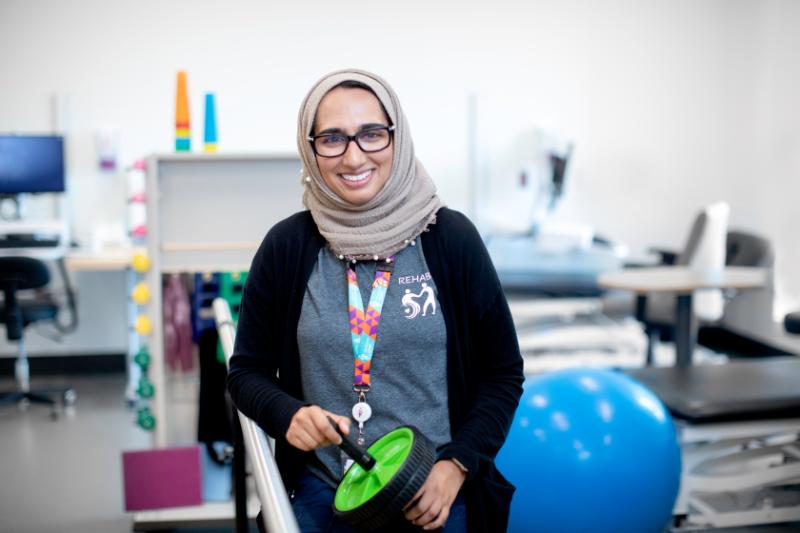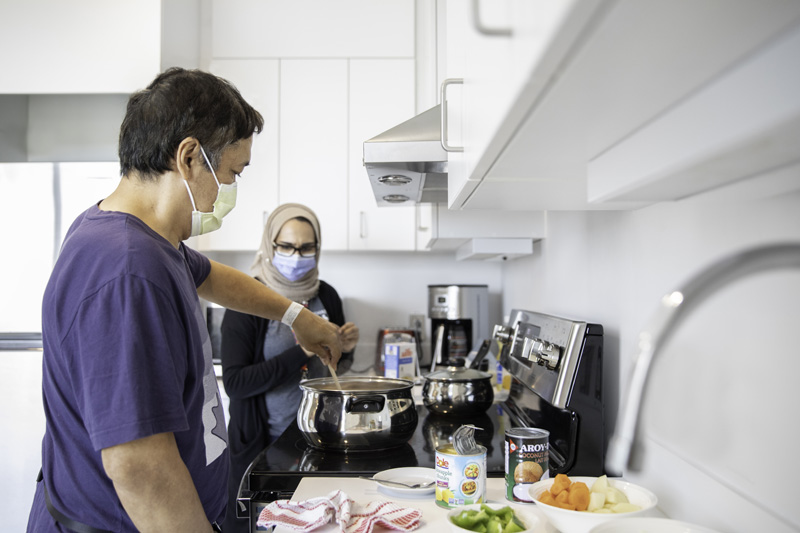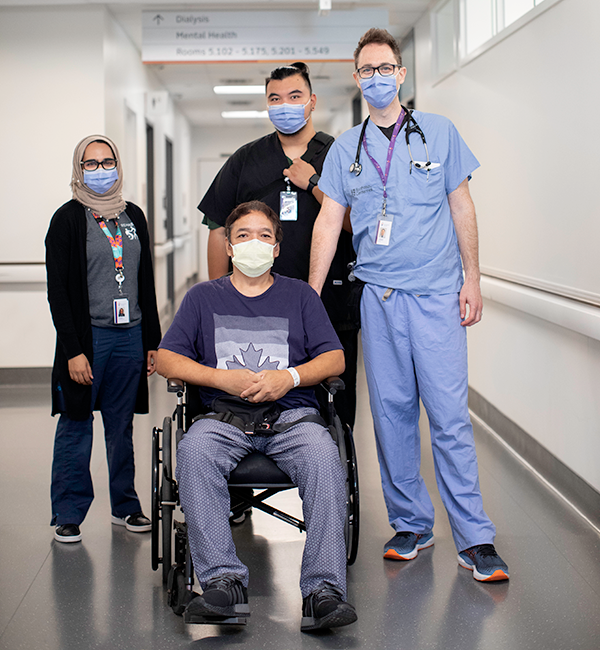Wendo Bacnis' stroke story
Stroke can happen to anyone, at any age – Wendo Bacnis’ story
On a warm spring day, Wendo Bacnis and his wife Rosalie were out celebrating their daughter Ada’s 25th birthday. After a satisfying sushi meal, the Bacnis family returned home for what they thought would be another regular evening. Rosalie and Ada took their dog for a walk, and Wendo chose to relax by the TV as he was feeling a little fatigued. Little did he know, this was the beginning of his stroke journey.
While out on their walk, Rosalie and Ada gave Wendo a call to check on him. To his surprise, when Wendo tried picking up the phone, he found he couldn’t lift his right arm for a few seconds.
“I was surprised that I couldn’t lift my arm to perform such a simple task,” says Wendo. “I didn’t understand what was happening.”
Anxious about this unusual feeling, Wendo decided to do something he enjoyed – gardening and watering his plants. It had always been such an effortless activity for him until that life-changing day.
“Within a few seconds of holding the hose, I got tired and my right leg became weak,” Wendo explains. “At that point, panic started setting in. I rushed back inside and called my wife and daughter to ask them to get home as soon as they could.”
Wendo’s symptoms were not improving, so they headed to the Emergency Department of their long-time community hospital – Mackenzie Richmond Hill Hospital.
A series of tests and assessments confirmed that Wendo was suffering a stroke. He was promptly transferred to Mackenzie Health’s second hospital, Cortellucci Vaughan Hospital, home to the York Region District Stroke Centre.
“As a 54-year-old man with no family history of stroke, I couldn’t comprehend why this happened to me,” says Wendo. “I felt hopeless, sad and scared. I worried I would be a burden on my family for the rest of my life. As a Filipino immigrant, I always took pride in taking care of my family, working hard to provide for them. At that moment, while laying in the hospital bed unable to move the right side of my body, I felt defeated.”

With intensive treatments and close monitoring from the interprofessional stroke team, Wendo started regaining his strength and confidence. Two weeks later, he started rehabilitation.
Farzin, one of the occupational therapists in the Sorbara Integrated Stroke Unit and a member of Wendo’s care team, played an integral role in his recovery and helping him gain his confidence back.
"As an occupational therapist my goal is to help my patients return to what they love to do the most and be able to find that purpose again following something devastating like a stroke,” explains Farzin. “At first, when I started working with Wendo, I saw how nervous he was about the unknown – he didn't know if he would walk or have use of his right arm again, let alone return to his role of being a father and husband. After a few sessions working with him and helping him build his confidence back, I started noticing improvements. His outlook on recovery changed when he realized that a good life after stroke is possible."


One of Wendo’s key milestones at the hospital was being able to practice cooking a meal for his family in the Independent Living Suite.
 “The Independent Living Suite in the Sorbara Integrated Stroke Unit at Cortellucci Vaughan Hospital allows our teams to observe patients in an apartment-like setting, doing day-to-day activities, prepping them for life after the hospital,” says Dr. Jordan Silverman, specialist in physical medicine and rehabilitation care at Cortellucci Vaughan Hospital. “Our goal is to get our stroke patients home and back to their regular life as soon as possible and we’re fortunate to have facilities like the Independent Living Suite and a gym with state-of-the art equipment to help us achieve this goal.”
“The Independent Living Suite in the Sorbara Integrated Stroke Unit at Cortellucci Vaughan Hospital allows our teams to observe patients in an apartment-like setting, doing day-to-day activities, prepping them for life after the hospital,” says Dr. Jordan Silverman, specialist in physical medicine and rehabilitation care at Cortellucci Vaughan Hospital. “Our goal is to get our stroke patients home and back to their regular life as soon as possible and we’re fortunate to have facilities like the Independent Living Suite and a gym with state-of-the art equipment to help us achieve this goal.”
With the help of Farzin and the stroke team, Wendo was provided with ingredients to surprise his wife with her favourite Filipino dish – adobo. The Independent Living Suite kitchen is equipped with everything one needs to cook a full meal, exactly like at home. To adjust to his new normal, Wendo learned new tools and techniques that he could use to be able to enjoy some of the things he loves doing, as independently as possible.


“I’m grateful for Dr. Silverman, the rehab team including Farzin, Melanie, Jay and Lauralee, and the Personal Support Worker for helping me during the most difficult time of my life,” says Wendo. “Being able to overcome my fears and feel hopeful again felt impossible at one point. But, with the compassionate care I received from this team and the dedication they exhibited throughout my stay at the hospital, I’m now confident that I was granted a second chance at a good life.”

Today, Wendo is back home and recovering well with his family. His story can help save a life. During a stroke, every minute counts. The faster you can recognize the signs of a stroke – which include facial drooping, arm weakness and speech difficulties – and call 911, the better the chances for recovery. Calling 911 will get you to the closest hospital best suited to assess your symptoms and provide treatment.
| At Mackenzie Health we’re proud to have a robust interprofessional stroke team that helps our patients reach their optimal level of function and facilitate re-entry into the community safely. |